Jonathan Phillips
@jsphillips.bsky.social
Cognitive scientist / philosopher working on modality and high level cognition.
Cognitive science at Dartmouth
https://phillab.host.dartmouth.edu/
Photo credit: Justin Khoo
Cognitive science at Dartmouth
https://phillab.host.dartmouth.edu/
Photo credit: Justin Khoo
We find that the visual system's representation of multiple possibilities is selectively disrupted by perceptual load, but not cognitive load, demonstrating that the key processes underlying the perception of possibilities occur before the information reaches high-level cognition!
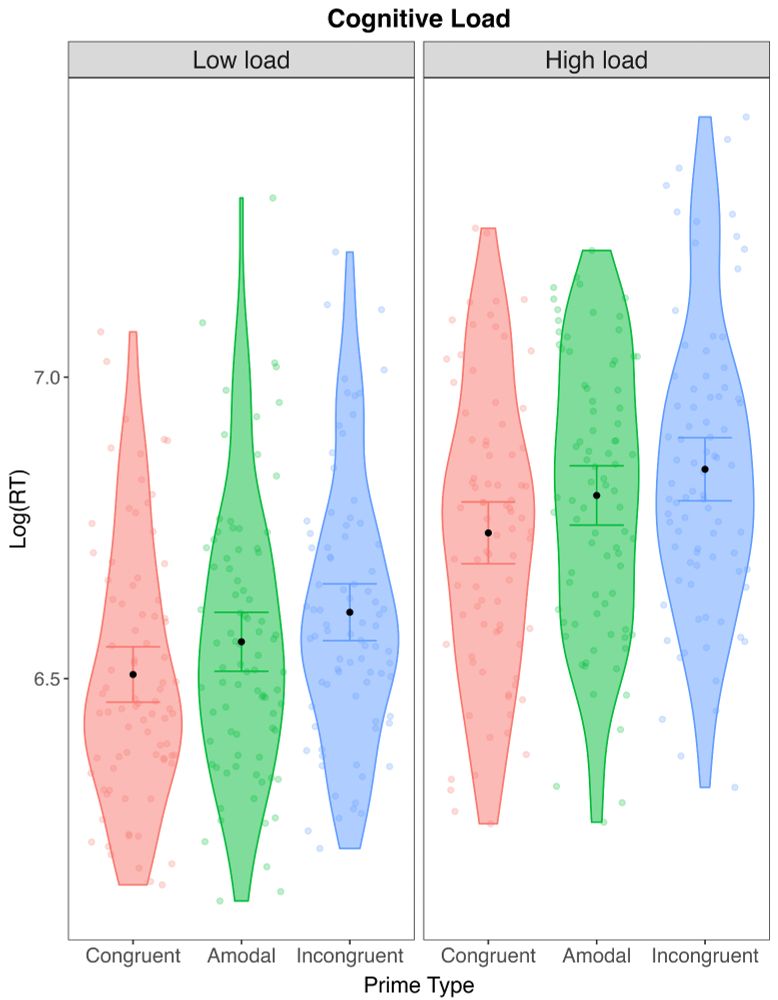
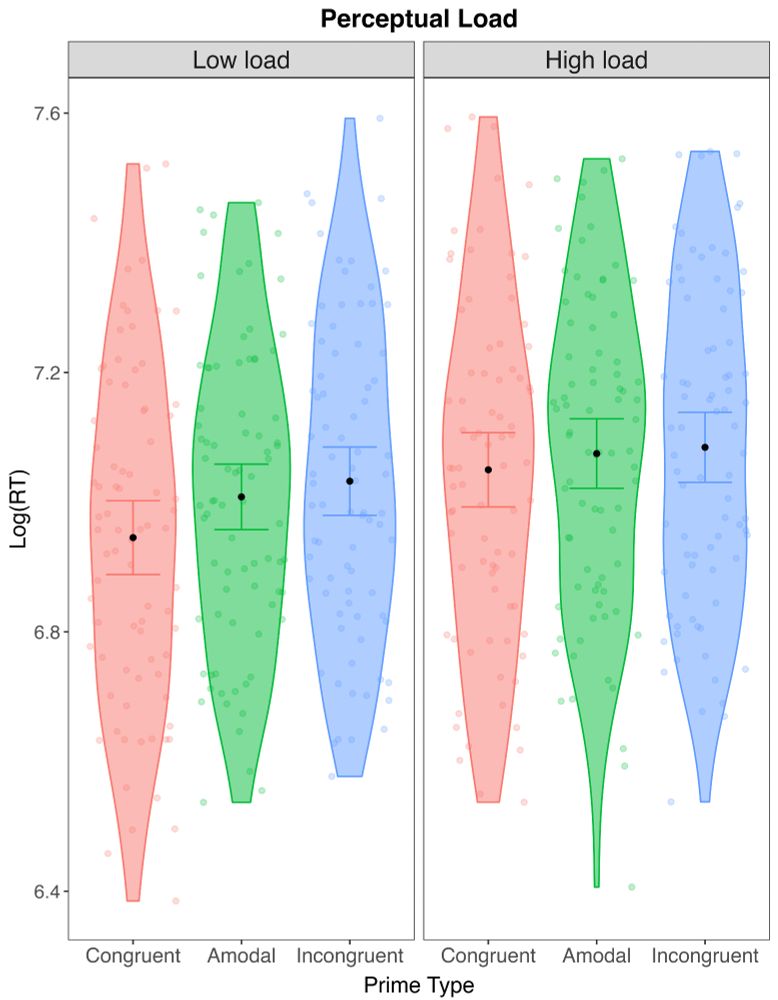
April 24, 2025 at 3:22 PM
We find that the visual system's representation of multiple possibilities is selectively disrupted by perceptual load, but not cognitive load, demonstrating that the key processes underlying the perception of possibilities occur before the information reaches high-level cognition!
The key idea (developed with Camden Parker and @violastoermer.bsky.social) was to use amodal completion as a case where the visual system can represent multiple possibilities (possible shapes) and then ask whether this representation is differentially disrupted by perceptual load or cognitive load.
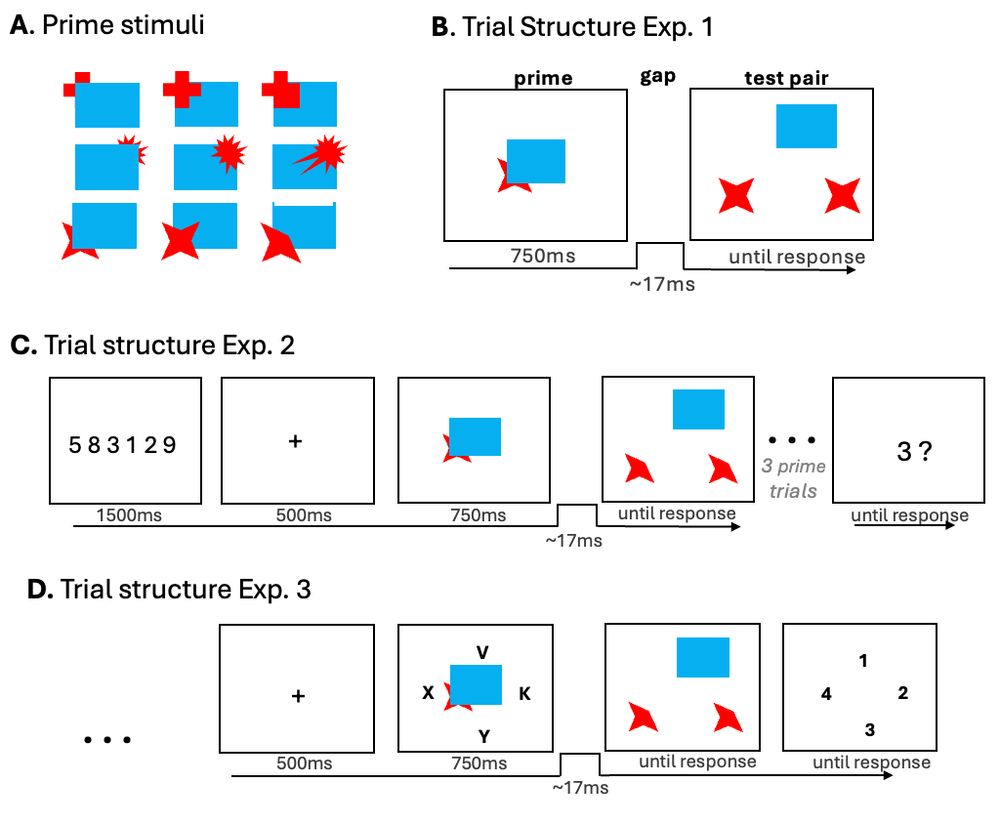
April 24, 2025 at 3:22 PM
The key idea (developed with Camden Parker and @violastoermer.bsky.social) was to use amodal completion as a case where the visual system can represent multiple possibilities (possible shapes) and then ask whether this representation is differentially disrupted by perceptual load or cognitive load.
And finally, we used a quite different methodology to show that people's neural patterns reveal a similar relationship: they have a lower BOLD response in the theory of mind network when evaluating knowledge than when evaluating belief (showing they didn't compute belief in computing knowledge):
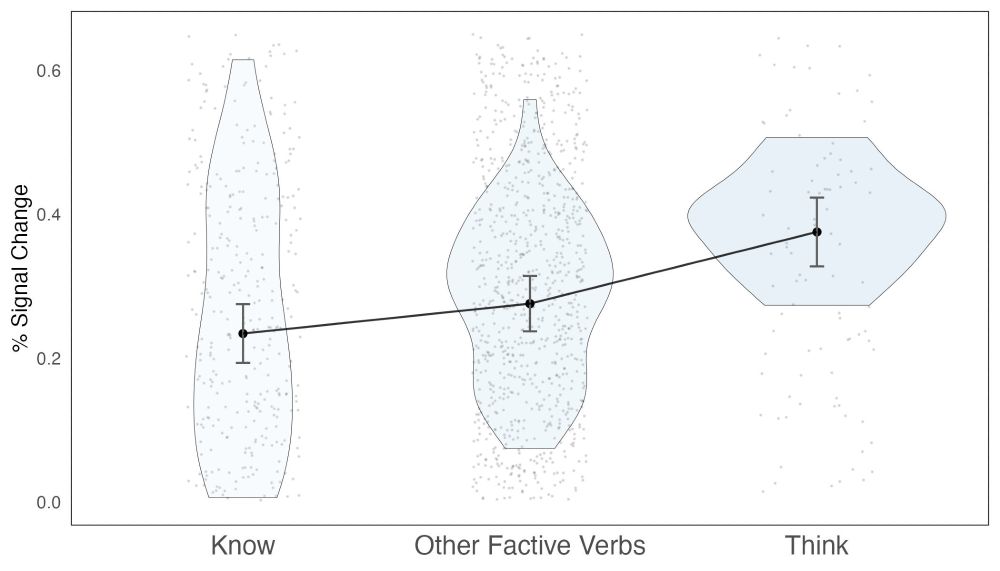
March 26, 2025 at 3:43 PM
And finally, we used a quite different methodology to show that people's neural patterns reveal a similar relationship: they have a lower BOLD response in the theory of mind network when evaluating knowledge than when evaluating belief (showing they didn't compute belief in computing knowledge):
Next, we showed that this is actually part of a more general pattern, where people are generally faster to make accurate evaluations of factive mental states (e.g., aware, recognize, understand) than non-factive mental states (e.g., believe, guess, assume):
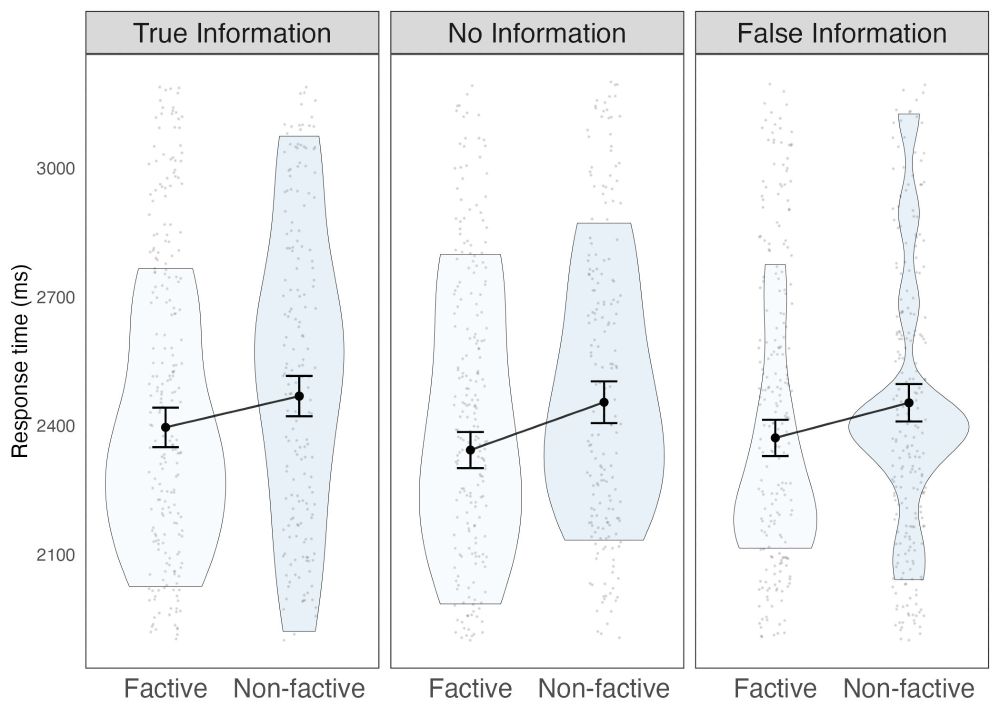
March 26, 2025 at 3:43 PM
Next, we showed that this is actually part of a more general pattern, where people are generally faster to make accurate evaluations of factive mental states (e.g., aware, recognize, understand) than non-factive mental states (e.g., believe, guess, assume):
We then find that this pattern is not specific to English, and that it generalizes to French speakers as well. French is an especially hard test case because in a lexical decision task, recognition of 'savoir' (know) is actually *slower* than 'penser' (think), and yet:
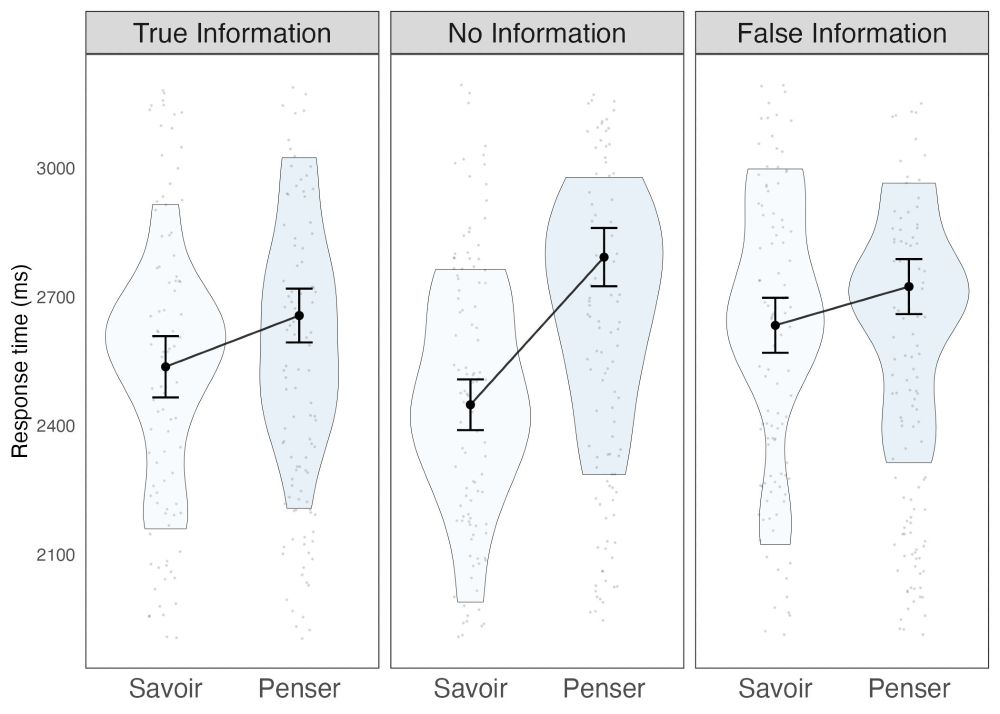
March 26, 2025 at 3:43 PM
We then find that this pattern is not specific to English, and that it generalizes to French speakers as well. French is an especially hard test case because in a lexical decision task, recognition of 'savoir' (know) is actually *slower* than 'penser' (think), and yet:
We then replicated this finding and showed that it extended to participants with Autism. For both, know < think, and this relationship is unrelated to AQ 10 scores. The pattern that knowledge evaluations are simpler and independent from belief is preserved across differences in neurotypicality!
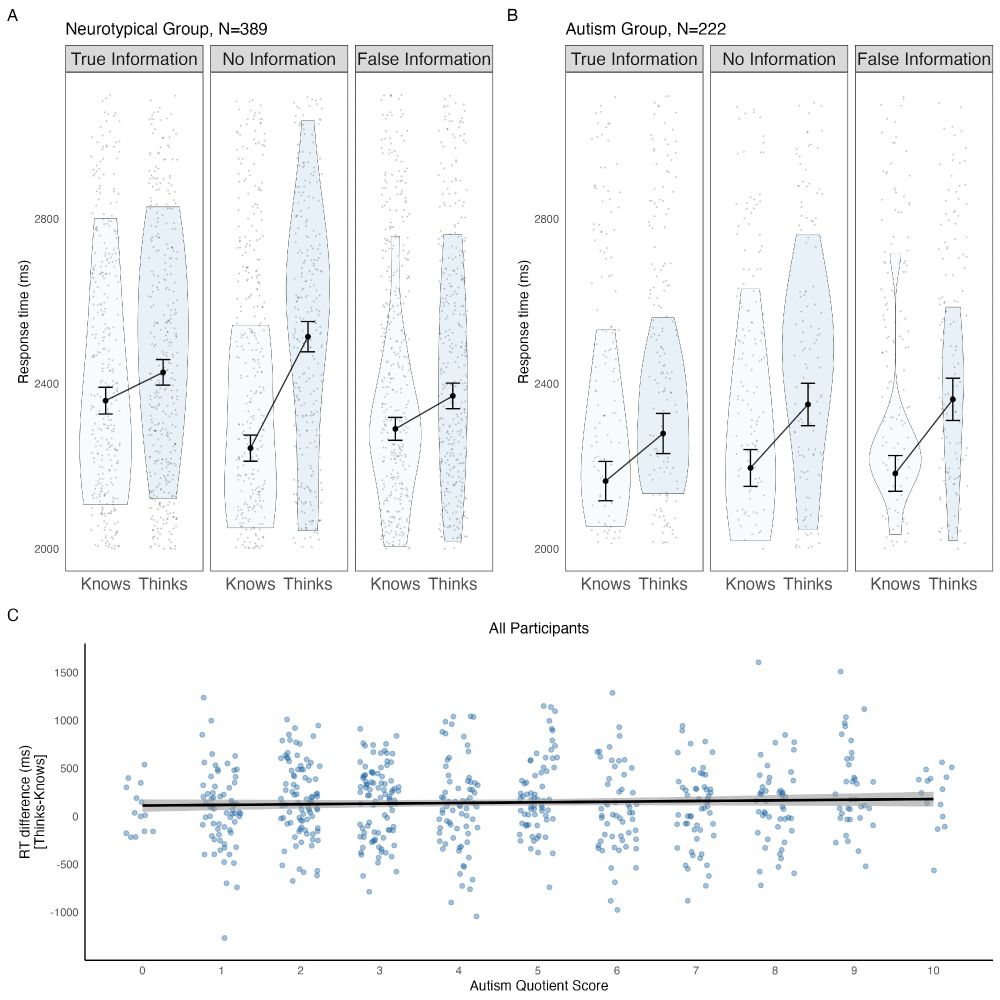
March 26, 2025 at 3:43 PM
We then replicated this finding and showed that it extended to participants with Autism. For both, know < think, and this relationship is unrelated to AQ 10 scores. The pattern that knowledge evaluations are simpler and independent from belief is preserved across differences in neurotypicality!
We first find simply that people are faster to accurately evaluate whether or not someone knows something than whether or not they think that same thing, indicating that they seem to be evaluating others' knowledge without first evaluating what they believe:
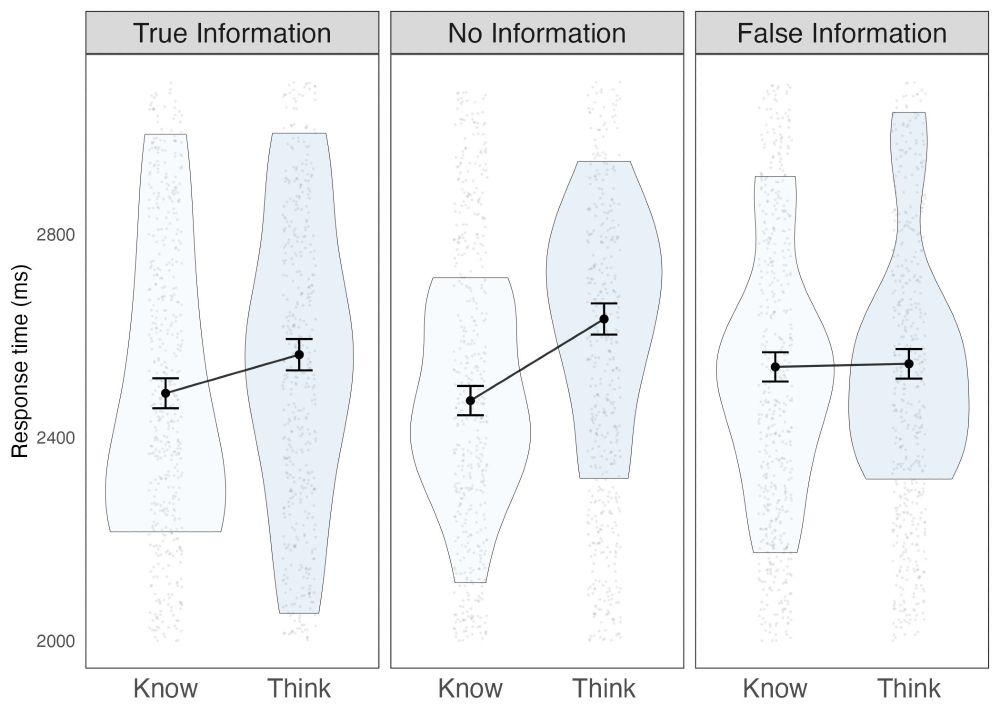
March 26, 2025 at 3:43 PM
We first find simply that people are faster to accurately evaluate whether or not someone knows something than whether or not they think that same thing, indicating that they seem to be evaluating others' knowledge without first evaluating what they believe:

